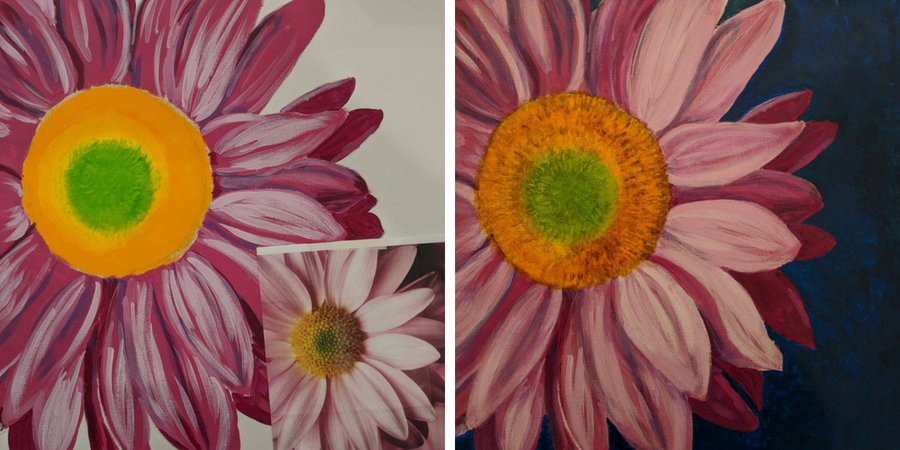
When was the last time you were a beginner? A time when you felt you didn’t know a thing, perhaps even wondered whether you should even bother trying?
And do you remember how you felt?
The Little Arthouse
When I walked into Vanessa Lombardo’s Little Arthouse studio, I had no intention of picking up a paintbrush. I was just there briefly to meet the friend of a friend. I hadn’t ‘done’ art since year 9, I declared. I couldn’t even draw stick figures well. Vanessa responded by handing me some watercolours and paintbrushes, before showing me how to ‘thrown down’ some colour on the paper.
I’m still not sure why I returned the following week. Perhaps it was the tea and cake, or the friendly atmosphere, or connecting to another woman who was an adult HeartKid (an encouragement for my not-yet-adult HeartKid) – but return I did. Three years later, and I’m still part of the small group who meet at the Little Arthouse studio on Friday mornings.
I’m still very much a beginner. And that’s perfectly okay.
Most of the time.
A Beginner’s Frustration
There have been numerous Fridays when I’ve experienced the frustration of being that beginner, when I think I’m never going to ‘get’ how to do it. For me, it’s a physical sensation, which starts in my stomach and rises up through my body. My heart races a little, and my head feels foggy. It occured most recently in a workshop about American artist Georgia O’Keeffe.
I began well enough. I chose an image, sketched out the daisy’s rough shape onto the canvas. It was when I put brush to canvas that it began to go pear shaped. The colours looked nothing like the ones in the photo I was using for inspiration. The shape seemed simplistic, the texture flat. Meanwhile, I observed the skill of others in the room – those who knew which paints to combine for a perfect hue, how to layer their work to build up shape and texture, so that it resembled something you’d be happy to have on your wall.
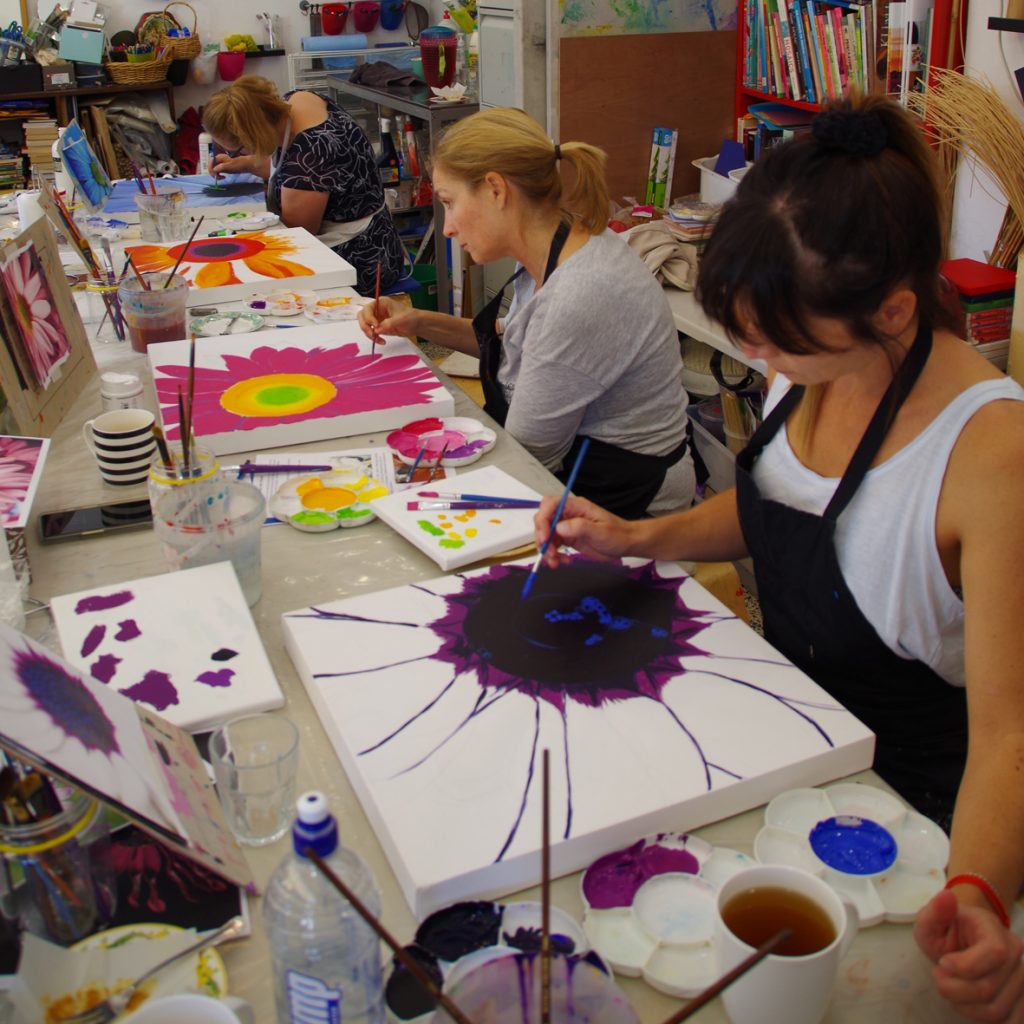
The familar frustration began to build. I seriously considered chucking it in. I was struggling to understand the next step being explained, and I certainly couldn’t translate those instructions onto the canvas. I needed to step away from my work.
I did.
I wasn’t sure I wanted to return to finish it.
But I did that, too.
It actually didn’t look quite so bad after a week’s absence.
The Power of Scaffolding and Encouragement
Vanessa demonstrated the next step for me, before getting me to take over and continue. She created what teachers call a ‘scaffold’. I (finally) realised that the painting wasn’t going to look finished with the first layer of paint thrown on to the canvas. There’s layer upon layer upon layer needed to create the overall impact. In my daisy, there are multiple layers of paint and colour, each layer adding to the one below.
And that doesn’t happen quickly – it involved another two sessions in the Little Arthouse. That might sound obvious to the experienced artists out there, but it was a revelation to me.
I’m still no Georgia O’Keeffe. But that’s okay. I don’t need to be. To compare my beginning attempts to her skill and expertise after many years is just unhelpful. Instead I can look at how far I’ve come. 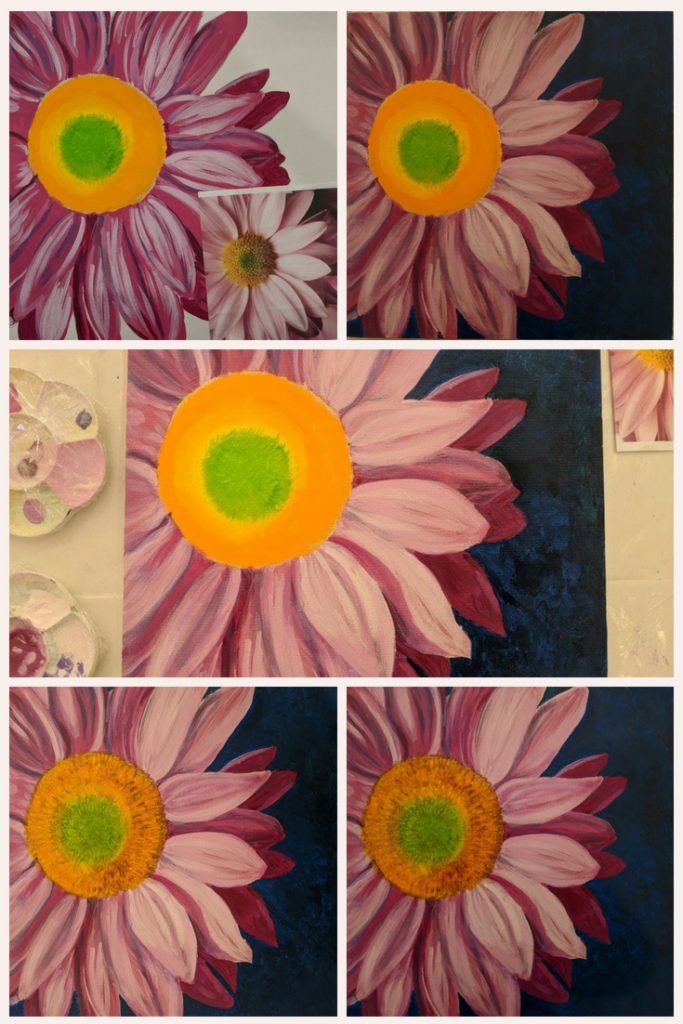
The writing process, although more familiar to me, is similar in many ways. For me, a story rarely arrives fully formed on the paper. First there’s a crappy first draft, where the story is sketched out in a rough and incomplete form. It’s only after that difficult first draft is down, that I have something to shape. I can add more detail to create complexity of a character, or the layer of subplot, or a sense of place. Then, later, there is reordering, refining, cutting, adding, rephrasing, fine tuning – over numerous drafts. And that’s before it reaches an editor, who will add their own suggestions and corrections.
In some ways, each new writing project returns me to being a beginner, just as each new art project elicits feelings of inadequacy, a sense of lacking ability, and the question of ‘why am I bothering?’ When I was writing Many Hearts, One Voice, there were days that the only thing that kept me going was my commitment to the women in the War Widows’ Guild; I’d given my word I’d finish the project. If I’d been left to my own intrisic motivations, I’d have given up numerous times.
Permission to be a Beginner
Louise Allen, author of The Sisters’ Song, recently wrote about beginning to be a writer:
‘There were times I wondered what the hell I was doing trying to learn something new. Why didn’t I stay where I felt secure, in the profession I knew and in which I had expertise? Why was I starting out all over again?’
Thankfully, Louise perservered in trying something new, because I fell in love with the characters that inhabit the pages of The Sisters’ Song.
It’s good to to remind ourselves that it’s okay – to give ourselves permission – to be a beginner. And to be honest about what that experience is like. Not only for ourselves, but for those who come after us.
Our children and young people must experience the frustration of being a beginner often. When they’re introduced to a new maths concept, or attempt a new football manoeuvre, or struggle to shoot a goal in netball. When the picture they draw looks nothing like they imagined in their head, or when their hands don’t move across the keyboard as smoothly as the music demands. So often they’re trying something new – and not always by choice.
My son once had a teacher who became grumpy if he asked her to re-explain a concept. Instead of finding a different way to teach him, she assumed he hadn’t been listening. He eventually gave up trying to do well in her class.
We all learn differently. One size does not fit all. We certainly don’t always ‘get’ it the first time. How many times did Vanessa need to show me how to paint the petals on that daisy? I always figured that if students didn’t understand my explanation, I needed to find a different way to help them.
But that doesn’t always happen (confession time: I haven’t always shown the same patience with my own kids).
I wonder how much of kids’ misbehaviour is the frustration of not being able to do or understand something. How many tune out because they feel a failure, rather than be able to recognise those feelings are a normal part of learning something new? How many adults respond similarly and give up on their dream?
Even in areas where we have some (or a lot) of experience, it’s worth reminding ourselves what it’s like to be a beginner, how frustrating that can be, and how the right encouragement, scaffolding and permission to make mistakes can make a world of difference.
Over to You
If you allowed yourself to feel that beginner’s doubt, fear and frustration, and choose to start something new anyway, what would you do?
Who is at least one other person you can enlist to support you as you step into the uncertainty – and the beauty – of pursuing that dream?

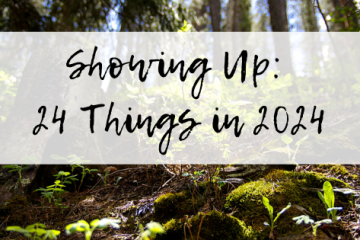
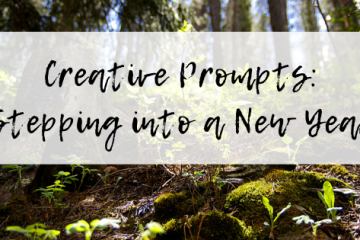

Great post, Melinda! As an adult, it’s scary starting to learn something new and we forget that kids must feel that way all the time. I feel strongly about encouraging learners, especially kids, who are looking to teachers (and parents) to learn about who they are and what they are good at.
I gave up English because my marks at school were average and everything I wrote came back covered with red pen. For over 25 years, I didn’t believe I could write and didn’t pen a single creative word. At the age of 43, I finally found the courage to throw caution to the wind and give it a go, but not believing for one minute I had any talent.
As a mother, I watched my son give up piano after getting no encouragement and only critical comments from examiners the whole way through his schooling. It was a struggle to keep his confidence up, as the only people encouraging him were his piano teacher and his parents, and he had difficulty believing us over the experts. When he finished school, he started voice at a tertiary institution, and, because he could play piano, he began accompanying students for their lessons and workshops. The Head of the institution noticed his musicianship and pulled him aside. She told him how musical he was and that she wanted him to do a double major, in voice and piano. It was the first time anyone with any authority had ever noticed his musical ability, and, boy, what a boost it’s been to his confidence—he is a new person! I wonder how much nicer it would have been if someone had encouraged him all the way through, instead of looking with only a critical eye. And I wonder how many more words I might have written if I’d started 25 years before I did.
Thank you, too, for the shout out. By the way, I love your painting of the daisy. 🙂
Hi Louise, thank you so much for responding, and sharing the story about your son – I was in tears reading it. Helping young people find their ‘spark’ and encouraging them is just so important! Thanks, too, for your post about being a beginner, as it was what prompted me to reflect about being a beginner myself.
Hi, Melinda, I seem to have fallen off your list of followers, and haven’t seen a post for ages, so I sought you out!
Loved this post and really relate to the self-doubt and insecurity of being a beginner. The trouble is, I feel like that a good deal of the time, especially around writing. Every piece is so new, and every time it seems as if you have to start over. On one level it doesn’t make sense, but on another, every piece is brand new.
The other time I feel like an absolute beginner is when I go to France, and need to re-learn and re-negotiate my way around speaking French.
Good to think about, and find out that others feel the same.
Hi Maureen, not sure what has happened there – thank you for checking up on me!
I certainly identify with your comment about feeling as though you are starting over each time you begin a new piece of writing.
Would love to catch up sometime – maybe Amanda needs to organise a Mastermind catch-up – or we can just organise something ourselves!